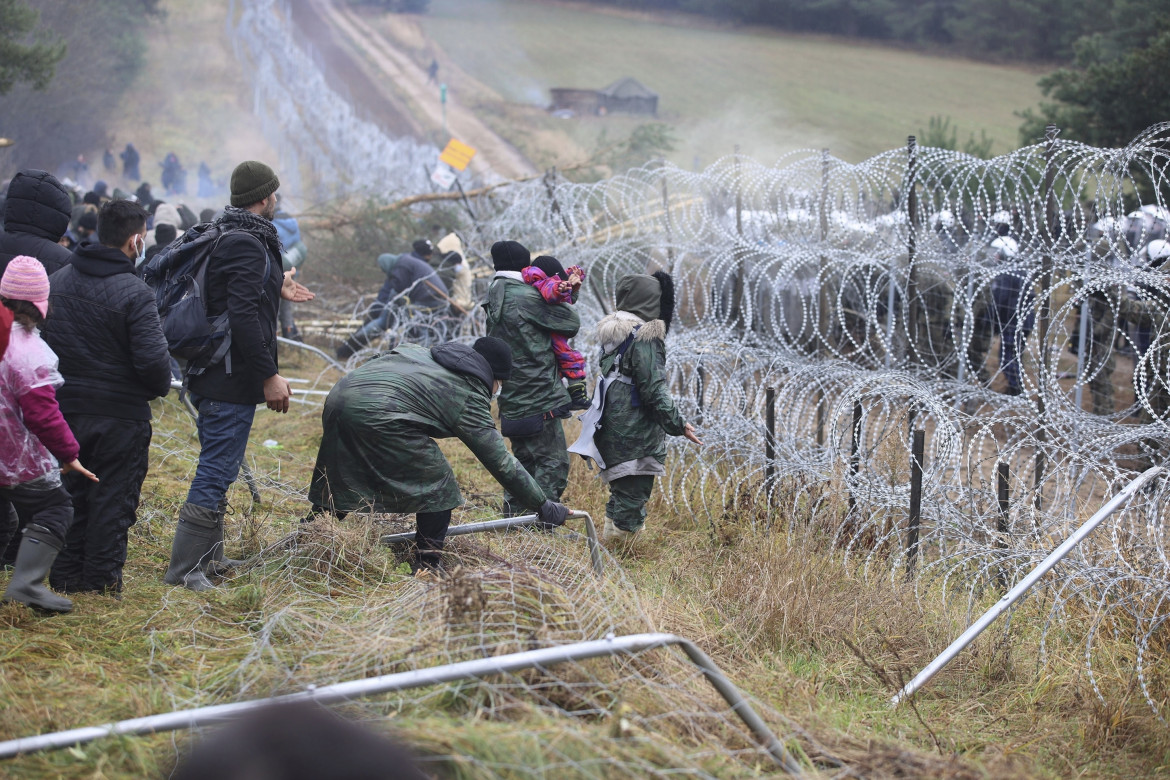Reportage
Refugees are trapped and weaponized in the Belarus-Poland standoff
The border crossings have been going on since August, but never before had so many migrants tried to enter Polish territory all at once as on Monday, when the Belarusian border police ‘escorted’ them there.

They were pushed by the Minsk regime towards the border with Poland and pushed back with tear gas by the Polish police.
On Monday, between 3,000-4,000 migrants found themselves between a rock and a hard place—involuntary instruments of the “hybrid attacks” of dictator Alexander Lukashenko, who is using them to punish the European Union for the sanctions adopted against the country. But also victims of the Warsaw government, which has now deployed 22,000 soldiers along the border with Belarus in order to prevent a growing mass of desperate people from crossing its territory to get to Germany.
“We are prepared to defend the Polish border,” said Minister of Defense Mariausz Blaszczak on Monday.
The border between Poland and Belarus is becoming more and more of a hot zone, to the point that the migrant crisis artificially created by Minsk now risks crossing over into unpredictable and dangerous scenarios. It could possibly involve NATO—called on by former President of the European Council Donald Tusk, today leader of the opposition to the populist government led by Law and Justice (PiS)—which said it was paying attention to what was happening and was “ready to support” its allies. Meanwhile, Moscow is defending and justifying the Belarusian regime.
The border crossings have been going on since August, but never before had so many migrants tried to enter Polish territory all at once as on Monday, when a stream of men, women and children arrived at the checkpoint of Kuznica, walking in line towards the border, “escorted” by the Belarusian border police. In the vicinity of this village in Podlachia, in the deep northeast of the country, the rumor that there was a hole in the fence convinced the refugees to try everything they could on Monday. According to sources reported by the Polish investigative journalism portal Oko.press, most of the people who converged on foot towards the Polish border came from a demonstration organized by Iraqi migrants in Belarus.
During the afternoon, part of the barbed wire fence began to give way in several places. “Belarus wants to cause a major incident, preferably with shots fired and casualties,” said Polish Deputy Foreign Minister Piotr Wawrzyk. Although journalists in Poland are still forbidden from accessing the 3-kilometer-wide closed zone along the border with the neighboring country, it was almost impossible not to notice this human mass, photographed several times from above and watched over by a Polish military helicopter.
Until Monday, pending the construction of a real wall, the strategy of indiscriminate pushback put in place by PiS had worked. But with such high numbers, all plans are off. Things ended up going off the rails in Kuznica. The army and police used tear gas to disperse the migrants, while some refugees tried to break through the fences using tree trunks as battering rams. But there are also those Poles at home who continue to show solidarity with the human beings used as pawns in an unpredictable and cruel political game that currently involves Warsaw, Minsk and Brussels. From the green lights turned on outside their houses by the inhabitants of Polish border villages to signal their willingness to offer help to migrants, to the appeals signed by major cultural figures, there is also a Poland that seems willing to help others, or, at least, ready to be indignant at what is happening to them. In a letter addressed to the Council of Europe and the European Parliament, Nobel Prize winners for Literature Svjatlana Aleksievic, Elfriede Jelinek, Herta Müller and Olga Tokarczuk denounced the “humanitarian catastrophe” that is taking place every day at the border.
With thousands of soldiers deployed in the area, Warsaw hopes to be able to manage the emergency without involving Brussels. Any involvement of Frontex could be interpreted as going soft on the idea of sovereignty that PiS wants to continue to convey to its voters, after saying “nie” in 2015 to the mandatory relocation of migrants on its territory. Meanwhile, the issue of the migration crisis is set to be addressed “urgently” next week by the EU foreign ministers. “I am calling on Member States to finally approve the extended sanctions regime on the Belarusian authorities responsible for this hybrid attack,” said European Commission President Ursula von der Leyen.
Originally published at https://ilmanifesto.it/scontro-minsk-varsavia-migranti-in-trappola/ on 2021-11-09
